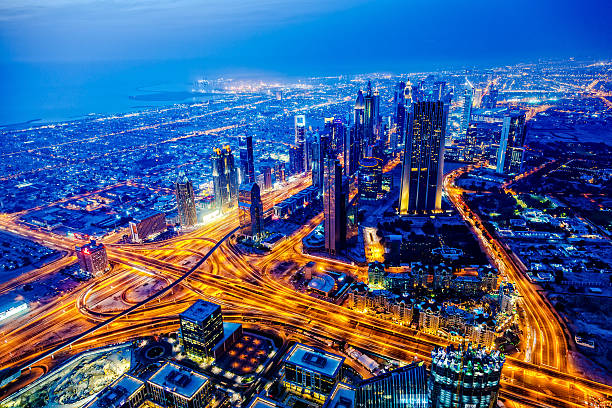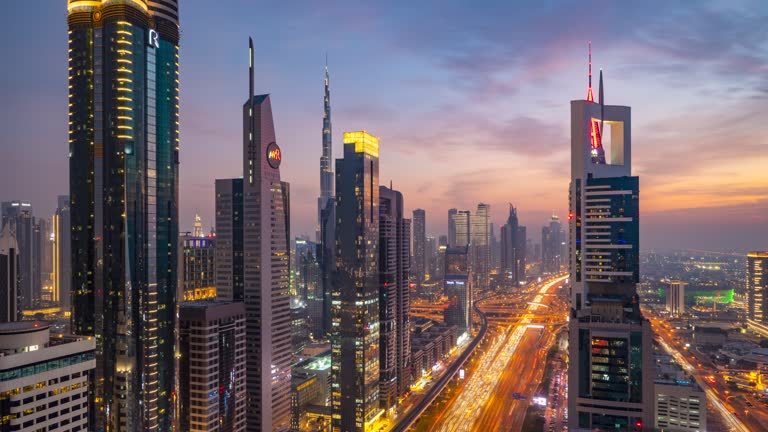A Complete Guide to Securing a Dubai Residence Visa: Steps, Costs, and FAQs
Securing a residence visa in Dubai is essential for anyone seeking to live and work in this vibrant city, which serves as a global hub for business and tourism. The process involves navigating through specific eligibility requirements, application steps, and understanding the costs associated with it. Whether you’re moving for employment, family reunification, or investment purposes, this guide will outline all the necessary steps to successfully obtain your Dubai residence visa.
Understanding the Residence Visa in Dubai

Definition and Importance
A residence visa in Dubai is a legal document that grants non-UAE nationals the right to live in the city for an extended period. This visa is crucial for expatriates, allowing them to access local amenities, work opportunities, and education for their children. The importance of a residence visa cannot be understated, as it enables individuals to integrate into the UAE’s diverse society and contribute to its economic growth. Without this visa, expatriates may face legal issues, including fines and potential deportation. Therefore, understanding the various types of residence visas available is the first step toward living legally in Dubai.
Categories of Residence Visas
Dubai offers several categories of residence visas tailored to meet the diverse needs of expatriates. The main categories include:
- Employment Visa: Issued by employers for employees working in Dubai.
- Family Visa: Allows expatriates to sponsor family members for residence in Dubai.
- Investor Visa: Designed for individuals investing a certain amount in property or business.
- Student Visa: For those enrolled in educational institutions in the UAE.
Each category has specific requirements and conditions, making it crucial to choose the one that aligns with your situation and goals in Dubai.
Eligibility Criteria for Dubai Residence Visa

General Requirements
To qualify for a Dubai residence visa, applicants must meet a set of general requirements. Firstly, they must hold a valid passport with at least six months of validity remaining. Secondly, applicants need an employment contract or sponsorship document from a Dubai-based company or a proof of family relationship if applying for a family visa. Moreover, applicants often must pass a medical examination, including blood tests and chest X-rays, to ensure they are free from communicable diseases. Additionally, individuals should provide a police clearance certificate from their home country as part of the vetting process.
Furthermore, it’s essential to have a clean legal history, as any prior legal issues might affect the application process. Ultimately, meeting these general requirements is vital for a smooth application process.
Specific Requirements for Various Categories
Each category of the Dubai residence visa comes with distinct eligibility criteria. For an employment visa, applicants must have a job offer from a UAE employer, who acts as the sponsor. The employer usually handles the initial application process with the relevant authorities, making it advantageous for applicants to have a reliable employer.
In contrast, the family visa allows residents to sponsor their spouses, children, or parents, provided they meet minimum salary requirements. An investor visa requires proof of investment in property or business exceeding AED 1 million. Furthermore, students applying for a student visa must provide an acceptance letter from an accredited educational institution in Dubai.
To simplify this information, here’s a table summarizing the specific requirements for each category:
| Visa Category | Key Requirements |
|---|---|
| Employment Visa | Job offer from a UAE employer |
| Family Visa | Proof of relationship, minimum salary requirement |
| Investor Visa | Minimum investment of AED 1 million |
| Student Visa | Acceptance letter from a UAE educational institution |
Applying for a Dubai Residence Visa

Steps in the Application Process
The application process for a Dubai residence visa can be broken down into several key steps. Initially, the applicant gathers all necessary documentation tailored to their specific visa category. This includes passports, photographs, medical reports, and any supporting letters from employers or educational institutions.
Next, the applicant or their sponsor submits the required documents to the General Directorate of Residency and Foreigners Affairs (GDRFA) in Dubai. It is advisable to check for any additional documents required by the GDRFA.
Once the application is filed, the authorities will process the application, which may require a medical check-up at approved medical centers. After successfully passing the medical examination, the application moves to the final stage, where applicants receive their residence visa and Emirates ID, which serves as their national identification. Following these steps can significantly streamline the application process.
Required Documents for Application
Filing a successful application for a Dubai residence visa requires comprehensive documentation. Depending on the visa category, the core documents generally needed include:
- Completed application forms signed by the sponsor.
- Valid passport with recent passport-size photographs.
- Medical fitness report from an authorized medical center.
- Relevant employment contract or university acceptance letter.
- Proof of relationship (for family sponsorship applications).
Providing accurate documentation helps avoid delays and potential complications in obtaining a residence visa in Dubai. Familiarizing oneself with these requirements can help applicants prepare adequately and increase their chances of a smooth application process.
Processing Time and Fees
Understanding the Timeline
The processing time for a Dubai residence visa varies based on the category of the visa and the completeness of the application. Typically, applicants can expect the process to take anywhere from a few days to several weeks. Employment visas, particularly, tend to be processed faster due to the employer’s involvement. However, applicants must account for potential delays caused by incomplete documentation, medical examinations, or administrative procedures.
It is prudent to follow up with the GDRFA to track the application status and ensure all documents are in order. Knowing the expected timeline allows applicants to plan their relocation to Dubai more effectively and prepares them for any potential transitional challenges.
Breakdown of Costs
The fees associated with securing a Dubai residence visa can vary significantly based on the type of visa and other factors. Generally, the costs involved include application fees, medical examination fees, and Emirates ID issuance fees.
For instance, the application fee for an employment visa can range from AED 200 to AED 600, depending on the specifics. Medical examination costs are typically around AED 250, while the Emirates ID fee can range between AED 100 to AED 300. It is essential to account for these costs when preparing to apply for a residence visa, as they can add up quickly.
Concluision
In conclusion, navigating the process of securing a residence visa in Dubai requires meticulous planning and a clear understanding of the requirements and procedures involved. From identifying the correct visa category to preparing the necessary documentation, every step is vital for a successful application. Knowing the eligibility criteria is essential to ensure that you meet the prerequisites, which can vary significantly based on the type of visa you are applying for. Additionally, being aware of the processing time and fees can prepare you for any financial obligations and timelines involved.
Furthermore, it’s essential to stay informed about any updates or changes to visa regulations, as immigration policies can evolve. Engaging with legal or immigration professionals can provide further clarity and guidance, making the process more manageable. With the right preparation, applicants can secure their residence visa efficiently, allowing them to focus on embracing life in Dubai and all the opportunities it has to offer. Ultimately, thorough knowledge of the entire process will not only facilitate a smoother application journey but can also enhance your overall relocation experience.
Frequantly Asked Questions
What is the duration of a Dubai Residence Visa?
The duration of a Dubai residence visa generally ranges from one to three years, depending on the type of visa granted and the conditions under which it is issued. For instance, employment visas are often issued for two years, while family sponsorship visas can be renewed for up to three years. It is essential to verify the specific terms of your visa upon issuance, as it will dictate any necessary future actions regarding renewal.
Can I work on a Residence Visa?
Yes, holding a Dubai residence visa permits you to work legally within the UAE, but only if you are sponsored by a UAE-based employer. This means that your employment is tied to your sponsoring company, and any job changes may require a different application process. It is crucial to understand the restrictions that come with your visa type because not all residence visas allow for employment in the same way.
Is medical insurance required for the visa?
Yes, medical insurance is a mandatory requirement for obtaining a Dubai residence visa. All residents, including expatriates, are required to have health insurance that covers essential health services. This ensures that all residents have access to necessary medical care, which is particularly crucial given the high standards of healthcare in Dubai. Proof of valid health insurance must be submitted during the application process, making it an essential part of the requirements.
How long does it take to renew a Residence Visa?
The renewal process for a Dubai residence visa can vary widely but typically ranges from a few days to a few weeks. The speed of renewal can depend on several factors, including the type of visa and the completeness of your application. It’s best practice to initiate the renewal process at least one month before the current visa expires to allow ample time for any potential delays. Ensure that all required documentation is in order to facilitate a smooth renewal process.
What happens if my Residence Visa application is rejected?
If your application for a Dubai residence visa is rejected, you will usually receive a detailed explanation regarding the reasons for the refusal. Common reasons for rejection can include incomplete documents, failure to meet eligibility criteria, or issues uncovered during background checks. In most cases, you are entitled to correct the issues highlighted by the authorities and resubmit your application. It is pivotal to thoroughly review feedback provided in rejection notices to enhance your chances of success in subsequent applications.
